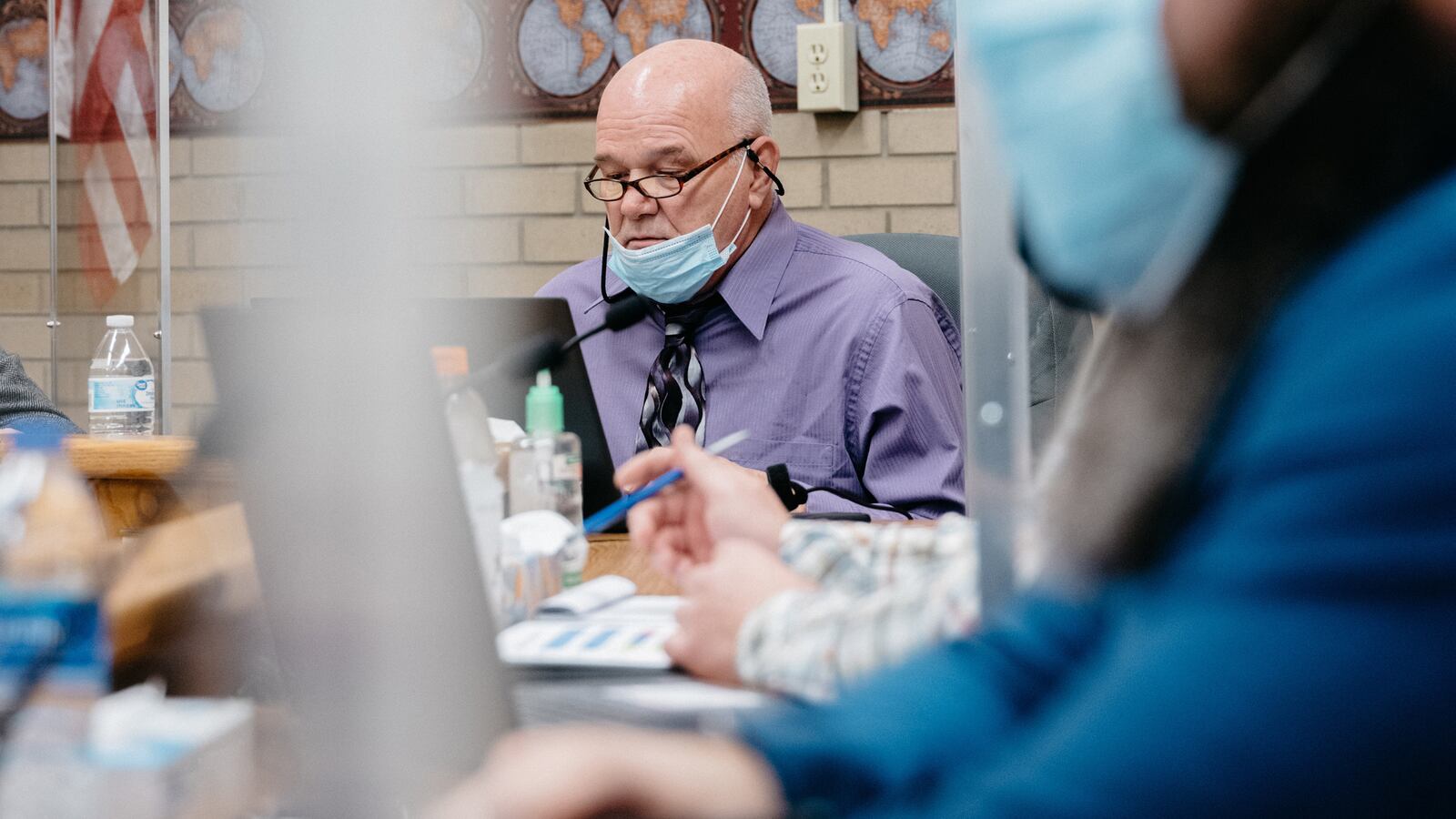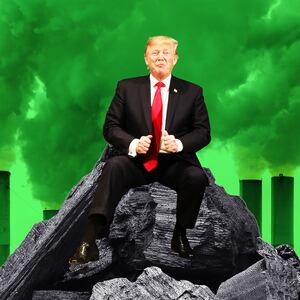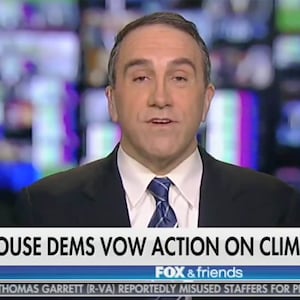Wyoming is coal country but with fossil fuels declining along with the good-paying jobs they supported, cowboy country is learning to, if not love, at least tolerate wind as a new source of energy and revenue.
Only three of Wyoming’s 23 counties are in the black. The once aptly named Carbon County, population 18,000, is one of them and it’s where Rawlins Mayor Terry Weickum is on the front lines defending the wind industry.
He says he’s against raising its taxes on the industry, as other Republicans in the state are proposing, “not because I’m a climate change believer at all,” but “because the quality of life begins with a paycheck. And if you’re going to come here and meet the requirements and be a good neighbor, why shouldn’t I want a successful business to come here? It’s strictly pragmatic on my part.”
Much of the West is in a painful transition away from fossil fuels, an economic shift that is also cultural. Weickum talked at length with The Daily Beast to make sure we understand where he’s coming from. He’s 68 years old, a registered Republican, and he’s held local office on and off for 20 years. He was just seated as Rawlins mayor in January, and he reveres the coal, oil, and gas industries that were Wyoming’s lifeblood for so long. But he also knows they’re never coming back to where they were.
“One of the weird things about Wyoming, there’s not a lot of difference between Republicans and Democrats until you start talking about national issues,” he says. “That’s when the fun starts.” Weickum, who spent some 30 years as a food and beverage distributor and until recently worked part-time in a parts distributor store, sees Washington as the Green New Deal and AOC and “super radicals,” big city brands that rural folks love to hate.
“We’re pretty much an island out here,” he says. “We don’t have a lot of the things you see going on. We don’t have riots and traffic jams and mass shootings, thank God. We’re kind of like Mayberry RFD, a small town where everybody knows each other.”
A lot of people in his town will never like the wind turbines, but a thousand towers are standing in Carbon County and another thousand are being put up by oil billionaire and conservative donor Philip Anschutz in what will soon be the biggest wind farm in the country.
“You know where he got his first money?” Weickum asks, recounting how a young Anschutz in 1968 was faced with an oil well on fire that would have bankrupted him when he called Universal Studios to film the blaze. The result was the John Wayne epic Hellfighters, and Anschutz was on his way to an oil fortune.
There are no heroic tales associated with windfarms, just legislative battles between diehards determined to save dying industries and local politicians like Weickum who are adapting to a rapidly changing reality. Weickum says he testified 18 times before the state legislature to oppose hiking taxes on windfarms, warning lawmakers it could drive away needed investment.
The state legislature just passed a trio of bills making it harder for Wyoming utilities to shut down coal plants and setting aside $1.2 million for the governor to sue states that switch to sustainable energy and thus no longer want to purchase fuel from Wyoming. But legislators took out a provision that would have made it easy to block windfarms because of their “viewshed,” and there are 53 windfarms coming into Carbon County.
Not many people think suing states to force them to buy coal will work, says Mark Haggerty, a senior fellow with the Center for American Progress who is based in Bozeman as part of the think tank’s commitment to reach parts of the country and communities left behind. “In the transition away from fossil fuels, communities in the West have been hurt, and there’s no guarantee renewable energy will replace job for job or dollar for dollar what’s been lost, especially not in the very same communities where it’s becoming clear that the transition is inevitable,” he says.
None of this is a secret in Wyoming, says Haggerty. There have been several blue-ribbon commissions, but none has been able to reach the painful reforms that it will take to move an economy away from its economic and cultural reliance on fossil fuels. Wyoming produces 14 times more energy than it consumes, and the bulk of that is coal. The state mines nearly 40 percent of the coal produced each year, outpacing West Virginia and Kentucky as the largest coal-producing state. Without coal exports, Wyoming will have no money for schools and roads, and there is no tax structure to raise revenue from other sources. The state has no income tax, no corporate tax, very low property taxes, and a sales tax limited to goods that exempts services.
“It’s not like it’s an even trade,” says Weikum. “It takes 3,000 people to build a wind farm and a hundred to run it. We lost 2,700 coal miners in the ’80s—2,600 jobs are not there—and so when people talk about replacing this with that, it’s not an exact replacement.”
Two years ago, two of the state's largest mining companies filed for Chapter 11 bankruptcy, costing almost 600 miners their jobs. As a frame of reference, the state collected $199 million in severance taxes from the coal industry in 2018 while the power generation tax on Wyoming wind farms brings in about $4 million a year.
“I believe in climate change,” Weickum says midway through our conversation. “It was about 40 degrees this morning, and it got warmer.” He laughs at his joke but adds that if he caught you dumping oil out in the country he’d report you, and that his former business is one of the biggest recyclers in the area.
He clearly enjoys taking jabs at the other side in the country’s ongoing culture wars, observing that the governor of Hawaii wants to “do away with coal and gas, she must have some biceps on her because she’ll have to paddle a canoe from here to Hawaii.” (The governor of Hawaii, a man, has pledged to transition the state to renewables by 2045.)
“When Al Gore starts in with that super-radical thing, and AOC says we’re going to be dead in 12 years, I saw her say that on TV, I don’t like the super-radicals on the left and there are some on the right too, no doubt about it. I voted for Trump twice and I can hardly stand his personality, but I like what he did on immigration and business.”
The nearest town to Rawlins is 100 miles away, so Weikum doesn’t think it’s likely he’ll be driving an electric car. Instead, he says, “I have plans to build an electric car and put a sign on it, ‘coal-fired car,’ because where did the electricity come from?”
He’s kidding, but he’s made his point. We may never agree on climate change but recognizing coal and its place in our shared history can go some small distance toward making an inevitable transition less polarizing.



